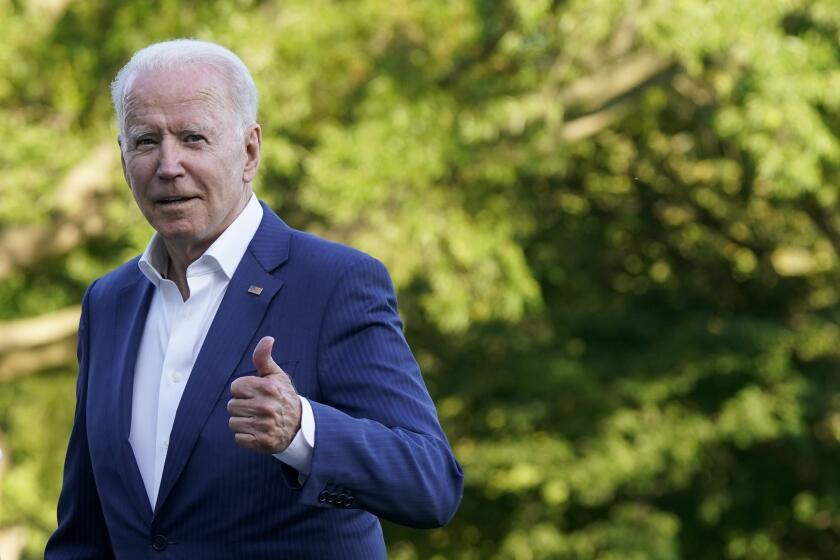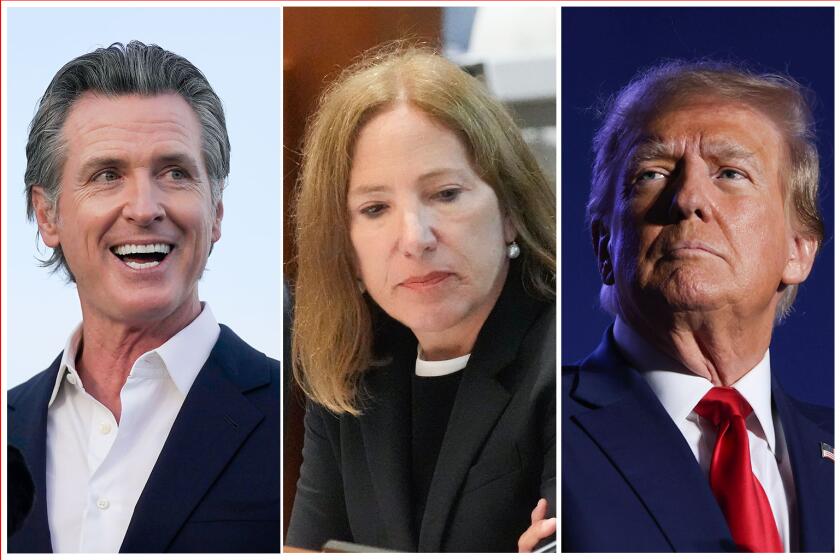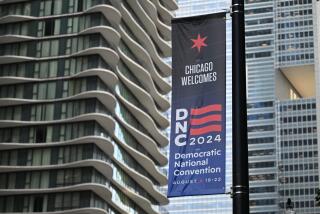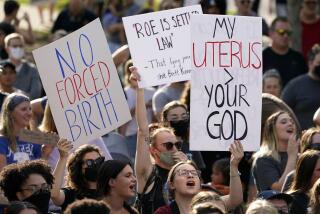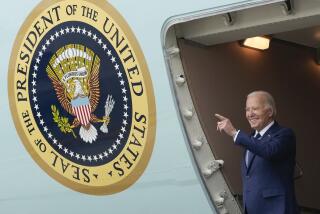Column: How the Vietnam War, political protests and a mimeograph machine birthed today’s Iowa caucuses
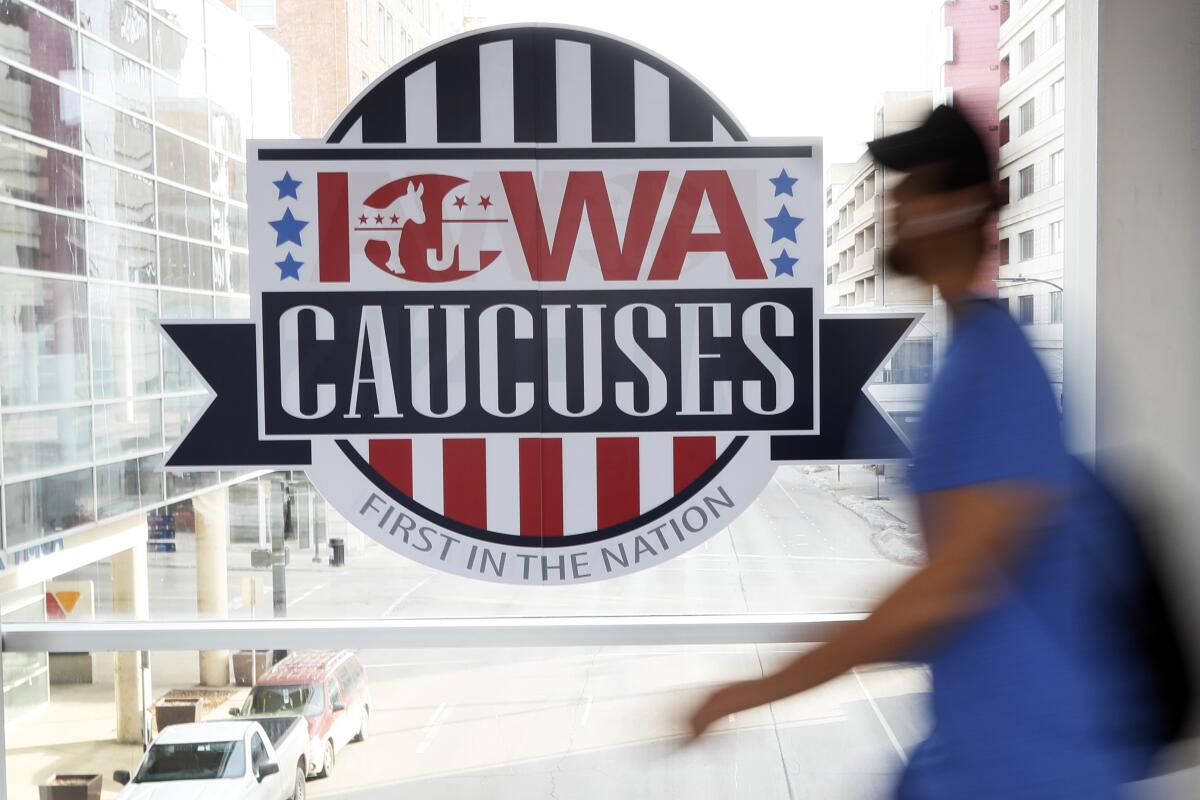
When Iowa’s brave and hardy Republicans venture Monday night into the arctic cold to cast the first presidential ballots of 2024, Richard Bender will be watching with special interest and a twinge of regret.
Bender, 78, has been called the godfather of the Iowa caucuses, in recognition of his role more than 50 years ago in creating one of the most closely followed and idiosyncratic events in American politics.
He was a young Iowa Democratic Party staffer at the time, an ardent foe of the Vietnam War and an architect seeking to build bridges between the party’s old guard and anti-establishment wings.
Today, Bender is retired from a career on Capitol Hill, living in the suburbs of Washington, D.C., and sorry to see his party shun Iowa — at President Biden’s behest — in favor of later contests in South Carolina and Nevada.
“It was good for my state,” Bender said of the caucuses that both major parties relied on for decades to begin choosing their presidential nominees. “I think we really did have an impact on national politics. I suspect Jimmy Carter and [Barack] Obama” — who used strong Iowa showings to launch themselves to the White House — “would agree with me on that.”
“And frankly, I had a personal pride in it,” Bender said. “So I wasn’t very happy to see it go by the wayside.”
Biden’s generational peers — who know better than most the challenges of aging — say they see no signs the president is hobbled or unfit for office. But they still worry about his candidacy.
As Bender is the first to attest, no one imagined the caucuses would turn into today’s internationally watched spectacle and crucial early test of political strength. Their timing, as the first event on the presidential calendar, began as pure coincidence.
Iowa had long chosen its delegates in a series of gatherings beginning at the precinct level — those are the caucuses being held Monday night — and concluding at a statewide convention. But those meetings, typically held in the spring, were largely the province of party bosses and political insiders who anointed their chosen candidates.
After the maelstrom of the 1968 Democratic National Convention, when party chiefs picked the presidential nominee and blood ran in the streets of Chicago, there was a strong push to overhaul the process and give voters more say.
In Iowa, the party was headed by Clif Larson, who’d backed Eugene McCarthy’s 1968 antiwar candidacy. He tasked Bender with leading an effort to devise a new, more open system for choosing the state’s presidential delegates.
Among the changes were the elimination of the winner-take-all rule, allowing candidates to receive a portion of delegates based on their grassroots support, and a requirement for public notification before each step of the nominating process.
The party’s straitened circumstances led to Iowa’s serendipitous place at the head of the political calendar.
Democrats were essentially broke ahead of the 1972 campaign and dependent on an old mimeograph machine. Counting back from the state convention on May 20, and allowing for printing and mailing materials out before each of four rounds, the party came up with Jan. 24 for the initial, precinct-level balloting — making it the first vote in the country.
Thus was born an institution.
A modest contingent of national political reporters showed up in Iowa to chronicle that first January caucus. Four years later, interest exploded when Carter, a little-known former Georgia governor, surged from nowhere and outpolled a field of Democratic heavyweights to catalyze his underdog campaign.
(Carter actually finished second in the caucuses, behind “uncommitted,” but his 28% showing exceeded expectations, which has become the measure of success.)
By 1976, Republicans were on board with the early vote, and for years Iowa and its rituals — kaffeeklatsches, state fairs, pandering to farmers and agricultural interests — were an indelible part of presidential politics.
Mindful of their privileged role, “Iowans really started to care and feel responsible,” said Bender, in a corned-beef-thick accent he retains from his native New York. (He moved to Iowa in 1967 to study biochemistry at Iowa State.)
“They became a very sophisticated, careful electorate,” Bender said. “Knowledgeable. Thoughtful.”
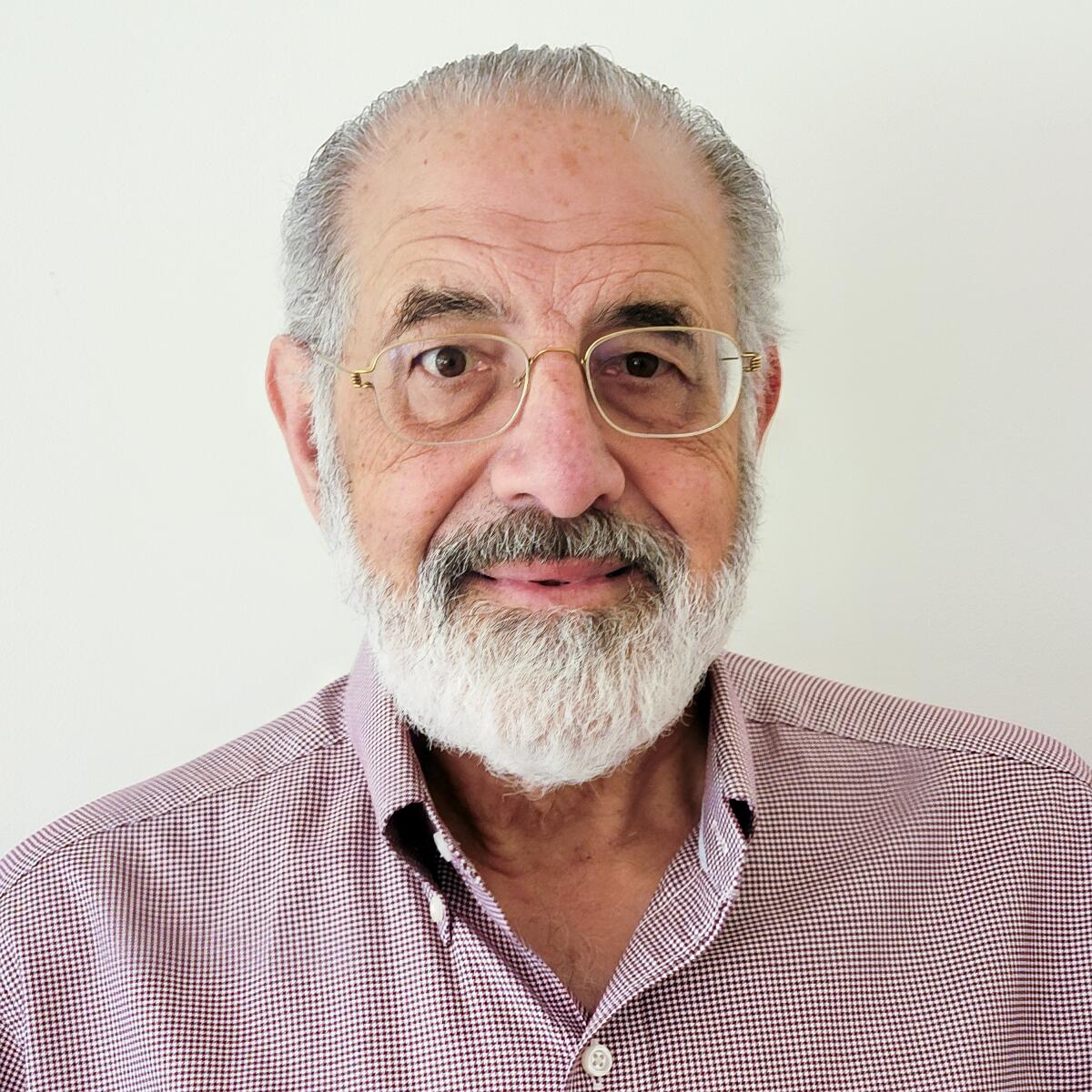
But as Iowa’s clout grew, so did resentment.
Politicians in big states like California griped about Iowa’s outsized influence. Others complained the state was too white and too rural, making Iowa unrepresentative of the country at large and the Democratic Party in particular.
When Iowa Democrats bungled the 2020 caucuses — taking days to declare a winner — it provided all the more reason to strip the state of its prime spot. (It also didn’t help that Biden, who was twice a candidate in Iowa, never finished better than fourth in the caucuses.)
This year, Democrats have officially bypassed both Iowa and New Hampshire, which has long hosted the nation’s first primary and also been criticized as too white and rural. The party will begin awarding it delegates Feb. 3 in South Carolina.
Republicans have had their own Iowa foul-ups.
On caucus night in 2012, Mitt Romney was declared the winner by a mere 8 votes. The state GOP then backed off that call, and more than a week later announced that former Pennsylvania Sen. Rick Santorum had, in fact, finished first. By then the campaign had long since moved on.
Even so, with no incumbent dictating the 2024 presidential calendar, Republicans kept Iowa first.
Watching from afar, Bender acknowledged that the caucuses are considerably removed from their humble origin. Thousands of journalists now descend on the state to chronicle its presidential campaigns, which have turned into multiyear extravaganzas fueling a multimillion-dollar industry.
The time has seemingly passed when a candidate can win Carter-style by slogging from small town to small town, bunking with local families and spending years meeting voters a handful at a time.
Trump, who made a splash in 2015 giving kiddie rides on his helicopter, has shown up relatively few times this election cycle — and is still the heavy favorite to win.
“He was an extreme example of what’s been happening for a long time,” Bender said, as TV, radio and, more recently, social media have come to matter more than the one-on-one campaigning that gave the caucuses their intimacy and charm.
California’s governor passed on a chance to score cheap points by attempting to keep Trump off the presidential ballot. As Newsom rightly stated, Trump needs to be defeated at the polls.
Still, Bender holds out hope — optimistically? naively? — that once Biden departs, Iowa may regain its prominence in Democratic politics.
It remains a place where voters can approach most presidential hopefuls and get a question or two across. “And I think that’s really useful,” Bender said, “as opposed to [candidates] creating five 30-second ads to represent what they are.”
It’s also still relatively easy and inexpensive to campaign across Iowa, where plenty of people are willing to give a political unknown a careful listen.
“It’d be the Jimmy Carter situation,” Bender said, envisioning a Democratic caucus renaissance.
He built it. He hopes his party will come, again.
More to Read
Get the latest from Mark Z. Barabak
Focusing on politics out West, from the Golden Gate to the U.S. Capitol.
You may occasionally receive promotional content from the Los Angeles Times.

